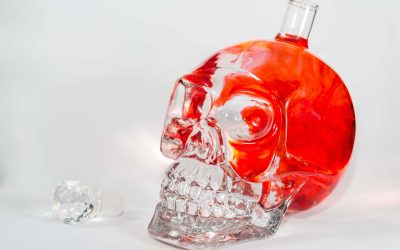Momentarily we did — then would come oblivion and the awful awakening to face the hideous Four Horsemen — Terror, Bewilderment, Frustration, Despair. Unhappy drinkers who read this page will understand! Now and then a serious drinker, being dry at the moment says, “I don’t miss it at all. Having a better time.” As ex-problem drinkers, we smile at such a sally. We know our friend is like a boy whistling in the dark to keep up his spirits.
Addressing selfishness, self-centeredness, and self pity is crucial for overcoming spiritual malady. By fostering empathy spiritual malady definition and meaningful connections, we can break free from the isolation and find a path to recovery. The reality of untreated alcoholism doesn’t lie. Of the fifty of us who came to the Big Book study, we all had similar problems.
Defining Spiritual Malady in Alcoholics Anonymous
Many discover that acknowledging a higher power aids in letting go of control and finding guidance in the recovery journey. This spiritual connection provides a sense of peace and purpose that can be transformative. Surrendering to a higher power enables us to tackle the deep-rooted spiritual malady that drives our addiction. A connection with a higher power is intrinsically tied to overcoming spiritual malady.
- Fear and selfishness are replaced with gratitude and purpose.
- That, we think, is the root of our troubles.” This “SELFISHNESS-self-centeredness” (or the “ego”, as some people refer to it) drives us to respond to life situations with the above “symptoms” as well as disorders and addictions other than alcoholism.
- In AA, the “spiritual malady” is the restlessness, misalignment, and discontent we feel due to what AA sees as a lack of spiritual direction by a “Higher Power.” It fuels the cycle of obsessing over alcohol and drinking it compulsively.
- Thankfully, the “spiritual malady” is no longer a “missing piece” of Step One for me.
A Spiritual Remedy for a Spiritual Condition
Many of us felt that there was something wrong with us or something missing—in short, we felt different from other people. We couldn’t understand why the people surrounding us could feel happiness or contentment, so we turned to drugs and alcohol as a means of self-medicating our perceived shortcomings. From our time http://www.typicalperu.com/alcohol-related-brain-damage-arbd-what-is-it-and/ spent feeding our addictions, we feel that the opposite begins to happen.
Overcoming this malady requires an active approach towards developing a sense of purpose through spiritual connection. Spiritual malady can be overcome by cultivating a deep Sober living home connection with oneself and a higher power. This involves finding meaning and developing practices such as prayer, meditation, or service to others.
Addiction Categories
My character, or basic nature, doesn’t work right. At its root, it is a fundamental and seemingly irresolvable insecurity…a hole that can’t ever be filled. It is an instinct run rampant, a desperate need for acceptance and love that cannot be met. The selfishness and self-centeredness of the alcoholic lies here…we are totally preoccupied with what is going on with ourselves on the inside. The slings and arrows of experience warped by this need drive us to the fringe, and the voices of the committee in our head keep us there.


An environment that is supportive and appreciates the spiritual aspects of addiction is crucial for sustained recovery. Maintaining close relationships with AA sponsors is critical, particularly in the first year of recovery, to avoid distractions and stay focused on healing. Identifying the right support system is crucial for sustainable recovery.
How do you know if you are having a spiritual experience?

Not even a preacher – the county doesn’t pay for those. It says, “God makes that possible and there often seems no way to get rid of SELF without His aid.” I have moral and philosophical convictions galore. I cannot live up to them even though I’d like to.
The idea of this group was to work through the twelve steps. I assumed this type of step workshop helped demystify the twelve steps for some members who found the steps too religious. Like myself, I knew members who felt daunted at the prospect of getting a sponsor and following suggestions. The BB study offered a supportive atmosphere in the safety of a group. To remedy a pretty bad legal situation, the Conference heard the recommendation of simply using the 'conference-approved' phrase on literature.
They arise out of ourselves, and the alcoholic is an extreme example of self-will run riot, though he usually doesn’t think so. For me, the circle and triangle represents the Alcoholics Anonymous solution to alcoholism. It is a perfect overview of our three-part answer (unity, recovery, and service) to our three-part disease (physical, mental and spiritual). In essence, individuals must realize that overcoming spiritual malady leads to a fulfilling life, full of love, happiness, and contentment. Through a combination of self-reflection, spiritual practices, and a supportive community, individuals can achieve a deep spiritual connection with themselves and others. It is crucial to note that overcoming spiritual malady requires dedication and ongoing effort.
- I am just an agnostic member of AA who believes in the program of recovery.
- Whether it involves prayer, meditation, or simply a belief in something greater, maintaining conscious contact with this higher power is essential for fostering spiritual growth and overcoming addiction.
- It is a sense of “otherness” that keeps us from feeling at peace with ourselves and the world around us.
Miracles of mental health
(Acronym for GOD) I was left with no other choice but to surrender to the suggestions of a sponsor. One-hundred-percent effectiveness with non-psychotic drinkers who sincerely want to quit is claimed by the workers of Alcoholics Anonymous. The program will not work, they add, with those who only «want to want to quit,» or who want to quit because they are afraid of losing their families or their jobs.
After overcoming homelessness and drug addiction, Adam found his life’s purpose in helping addicts find the same freedom he found. As Founder and Executive Director of the 501(c)3 nonprofit, Recovered On Purpose, and Managing Partner of Behavioral Health Partners, Adam has helped thousands find freedom from addiction all over the world. These struggles are symptoms of the spiritual malady, which must be addressed through the 12 Steps to achieve lasting sobriety and freedom.
